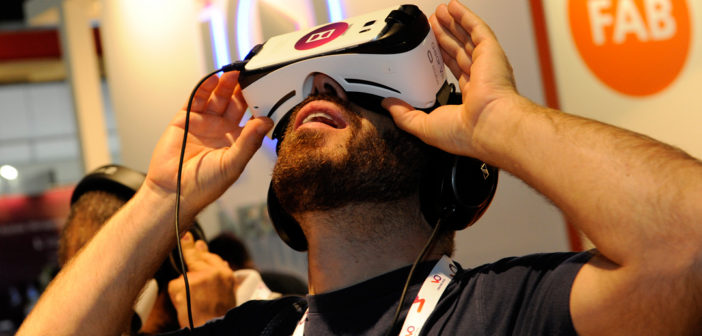New study looks at impact of latency on VR gamers
A joint neuroscience study carried out by Vodafone and Ericsson has studied the impact of network lag on traditional and virtual reality (VR) gaming.
In January 2018, Ericsson’s Consumer & Industry Lab and Vodafone Spain explored how network latency impacts the subconscious reactions and stress levels of online gamers while playing in VR compared to on a PC.
VR gamers typically use specially designed headsets to immerse themselves in a computer-generated environment with ‘six degrees of freedom’ (forward/backward, up/down, left/right). With their cognitive resources at their limit, VR gamers are even more sensitive than traditional online gamers to lag and delays caused by network latency and packet loss.
To explore the importance of network performance on VR gaming, the brain activity, attention spans and heart rates of nearly 70 online gamers from Madrid, Spain were monitored during a series of tests carried out in January 2018.
The test subjects – ranging from casual through to professional gamers – played three four minute rounds of ‘Counter-Strike: Global Offensive’ on PC and ‘Pavlov’ on a VR system on a fixed broadband connection. Using a network emulator tool, varying levels of lag (network connection quality) were simulated along with packet loss.
During the test, their emotional, cognitive and behavioural reactions were measured using a sophisticated array of EEG brain-wave monitors, eye-tracking gear and pulse meters.
The study found that the impact of poor network performance was particularly pronounced for VR gaming. Network lag in VR was three times more stressful for gamers compared to lag experienced while gaming on a PC. The study results provided valuable insights into the demands that future services, such as VR gaming, will place on network performance and the need for 5G low latency networks.
To improve the online gaming experience – both on fixed and on mobile – Vodafone is exploring the potential of multi-access edge computing (MEC) to significantly reduce lag times.
On mobile, gaming data packets travel via radio from the device (phone, tablet or dongle) to the mobile base station antennae, then through Vodafone’s local network and connect to gaming servers via internet backhaul. Each section of the journey adds lag and the potential for packet loss, but it is typically the last leg of that journey – through the internet backhaul – that accounts for the biggest portion of latency experienced by gamers.
Placing gaming servers at the edge of Vodafone’s mobile network, however, has the potential to cut out the slowest and most congested part of the journey. For multiplayer gamers who are connected simultaneously to the same network node, Vodafone believes MEC will make it possible to almost entirely eliminate lag, delivering an exceptionally low latency gaming performance indistinguishable from playing on a local access network.





